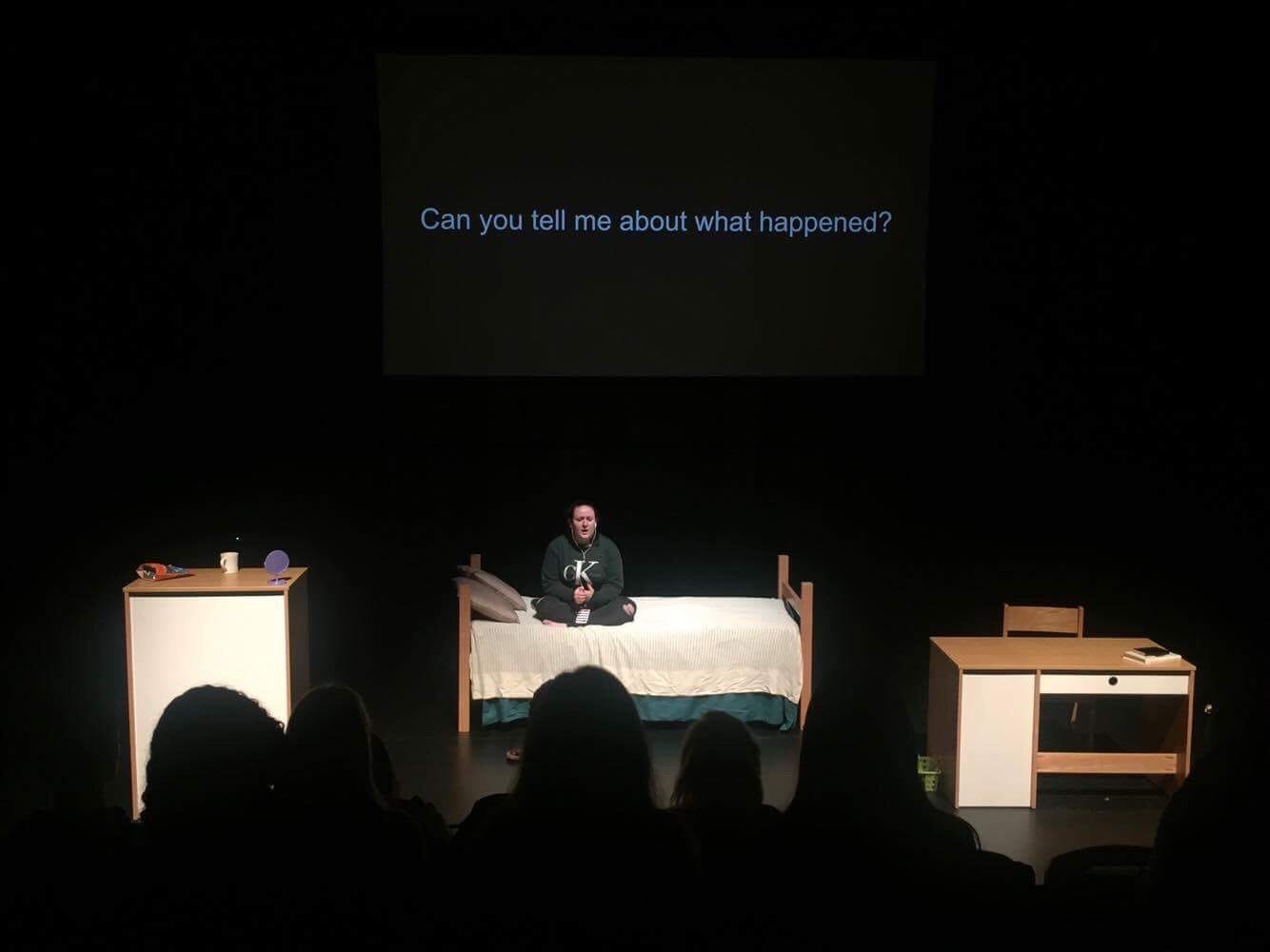
Photo courtesy of Hannah Fink ‘19
She sat on an inconspicuous dorm bed, barefoot and clad in a green crewneck sweatshirt and skinny jeans. As she repositioned herself on the stage, representing one of the four identities with every position, words flashed onto the screen behind her: “How did you feel directly after the assault,” “How do you feel now?” and “What can colleges and universities do to improve their response to sexual assault?” With every question, she dove deeper and deeper into the confusion, fear, horror, insecurity and paranoia that survivors of sexual assault experience. In her performance,
Speaking Out
, about sexual assault on NESCAC campuses, Bridget Lavin released tension that has been held inside four different female college students.
Bridget Lavin, a Senior at Hamilton, single-handedly wrote and performed
Speaking Out
this past Friday and Saturday in the Barrett Theater. Using her Levitt Summer Research Grant, Lavin interviewed four different women from schools within the New England Athletic Conference (NESCAC) about the time(s) when they were sexually assaulted. In an attempt to provide a platform for their voices, Lavin shared their stories anonymously by retelling each interview in her performance. Throughout the entire performance, Lavin kept her earbuds in her ears, replaying the audiotape of the interviews that she had with the survivors so that she could listen to them as she retold their stories, word-for-word.
Lavin’s hour-long performance was a teeth clencher and jaw-dropper. There was no aversion to the graphic descriptions of the assaults, and, due to her stupendous acting, there was no exclusion of emotion either. Over the course of the performance she switched roles between the four women that she interviewed, retelling their responses to the same question one after the other, giving a lens into four different situations. This showed the audience that although Lavin asked each of the survivors the same questions, they each had very different responses, highlighting the fact that each case of sexual assault is extremely different. Lavin made it clear that one case of sexual assault cannot be grouped into a certain category and cannot be swept under the rug. Instead it needs to be treated as a serious matter, and people that survivors seek refuge with need to listen to their story.
The power of love: artist and activist Vanessa German performs at the Wellin
By Natasha Lane ’21, A&E Contributor
spec.hamilton.edu
Lavin’s performance highlighted that not all sexual assaults are related to drugs and alcohol, which is the stigma on college campuses. Rather, sexual assault can happen between two people who are in a relationship where one person has too much control. Furthermore, assault can happen without the survivor realizing it until after the fact. No matter how it occurs, Lavin’s interviews reveal that not all sexual assault victims are given the support and care that they need. Lavin retold the interview of a girl who was assaulted at a boarding school (and was assaulted again in college) and was sent to the Dean’s Office after she spoke up. There, she told her story and did not receive a follow-up until two weeks later. The person who assaulted her was not kicked out of school and her case was soon forgotten. The survivor believes that it has to do with the school’s fear of losing its prestige. This situation is not unusual.
The lack of help that survivors receive and the never-ending fear that survivors experience is why Lavin decided to do this performance. She believes that all survivors deserve the chance to share their story because each story is different and each survivor matters. However, she also reminds us to keep in mind those that do not share their stories. Although some people are silent, their stories are just as valid and worth listening to, whether or not they decide to share them.
